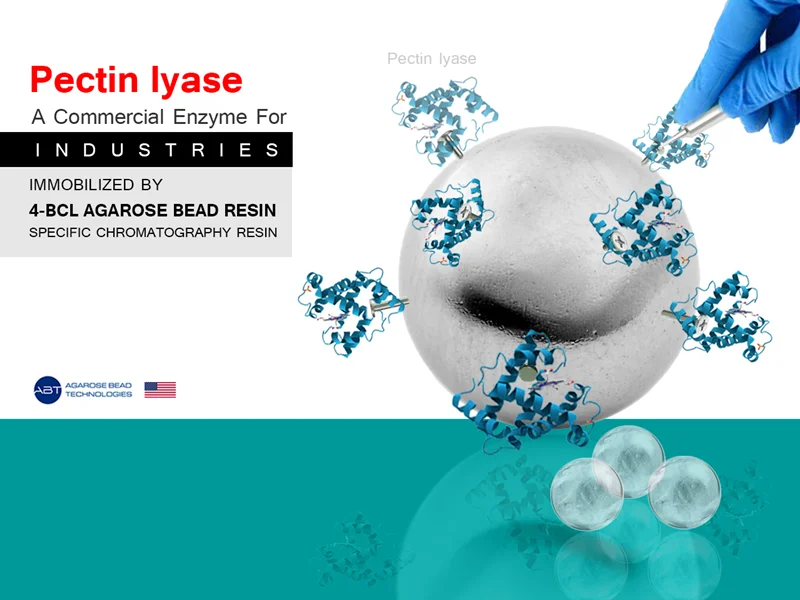Pectin lyase immobilization using the glutaraldehyde chemistry increases the enzyme operation range
https://doi.org/10.1016/j.enzmictec.2019.109397
Abstract
Pectin lyase (from Rohapect 10 L) was immobilized on glutaraldehyde supports at low ionic strength at pH 5, 6.5 or 8 and later incubated at pH 8 for 48 h. The activity recovery of the biocatalysts versus pectin was quite low, under 10% for all of the immobilized biocatalyst at 20 °C. However, a high stabilization was found when the enzyme was immobilized at pH 5, (e.g., the immobilized enzyme kept 83% of the activity when the free enzyme was fully inactivated (pH 4.8 and 55 °C in 5 h)). This biocatalyst increased the activity versus pectin in an almost exponential way when temperature increased until reach the maximum temperature used in the study (90 °C), conditions where the free enzyme was almost inactive. The immobilized biocatalyst was also active even at pH 9, where the free enzyme was fully inactive. This biocatalyst could be reused for pectin hydrolysis 5 times for 72 h reaction cycles at 40 °C maintaining more than 90% of the initial activity.


دیدگاه خود را بنویسید